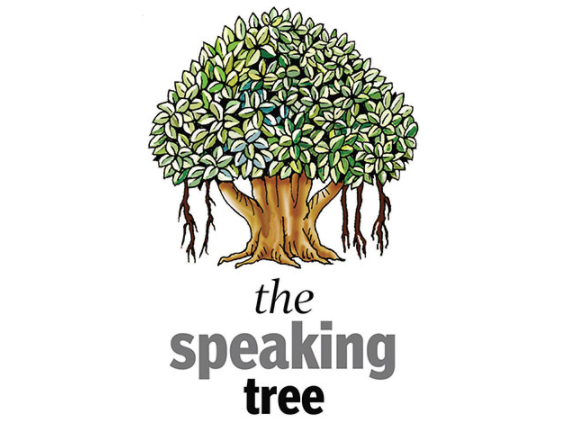Why Your Self-Image Controls More Than You Think

We all live with a mirror in our minds.
Not the one hanging on the wall — the one that quietly reflects us in every social moment, every selfie, every passing window. From teenage years to adulthood, and beyond, we carry a silent awareness of how we look — an invisible consciousness that can both lift us and trap us.
This awareness begins off innocently enough, like wanting to look good for a meeting, a picture, or a date. But over time, it becomes something deeper — a story in your imagination where how you look starts to change how you feel. You don’t just look good or bad; you feel good or bad because of it.
The question then becomes: are you seeing yourself, or are you performing yourself?
The Balloon of Compliments
When you’re young, compliments come like confetti. “You look great,” “You have such charm,” “Your energy lights up the room.” These affirmations fill up a balloon of self-esteem that makes life easy for you.
But here’s the thing: if that balloon is exclusively inflated by outside approval, it will eventually lose air. When people stop paying attention and giving you compliments, you start to wonder, “Who am I when no one is looking?”
That’s when you start to get it: confidence based on how things look is weak. Real confidence is what you carry when no one’s watching.
The Shock of Seeing Yourself Differently
Sometimes, all it takes is one accidental moment to disrupt your image. Shaving off a beard after six years, getting a bad haircut, catching your reflection in harsh light — suddenly, you don’t recognize the person in the mirror.
That jolt is more than surprise — it’s an identity glitch. You know how closely your self-image and your confidence are linked. You might tell yourself looks don’t matter, but in that split second, you feel they do.
That’s the consciousness at work — quietly shaping how you move, talk, and even feel about yourself.
When Appearance Controls Emotion
We like to believe that appearance and mood are separate — that our confidence is internal. But subconsciously, our self-perception dictates our emotional state more than we admit. A good hair day makes the world friendlier; a bloated face makes you retreat.
The mirror doesn’t just reflect — it commands. It tells you whether to show up boldly or fade quietly.
And that’s where awareness needs to turn into wisdom — realizing that how you carry yourself matters far more than how you look.
The Subtle Power of Carrying Yourself
There’s a quiet beauty in posture, in ease, in self-assurance. You can sense it in people who’ve made peace with their reflection. They no longer perform for approval — they move with presence.
When you carry yourself well — when you stand tall, speak clearly, smile genuinely — you become attractive, regardless of features. You shift from being looked at to being felt.
That’s the paradox of true beauty: the more you own yourself, the less you need validation.
Filters and the Fight for Control
We live in a filtered age — where every camera has a smoothening option, every photo an edit, every face an ideal. So naturally, we become hyper-aware of every flaw. Hair thinning? You notice it before anyone else does. Dark circles? You zoom in before others even see them.
But the truth is — everyone’s too busy doing the same with their own reflection.
We’re all trying to perfect the same illusion — and losing a bit of authenticity in the process. The more we chase control over how we appear, the more we disconnect from how we are.
It’s about how well you fit in with who you are and how you act. The fact is people respect you more when you are in shape rather than you having good skin.
The False Shortcut of Cosmetic Fixes
Cosmetic operations, weight-loss drugs and surgeries, and numerous adjustments may promise confidence, but they often make you dependent on them. Every “correction” makes the trap worse. You start to perceive yourself not as you are, but as a project that is still being built.
It’s like reheating a food that has already lost its flavour. You can add spices, but the original taste is gone.
The real transformation doesn’t happen on the surgeon’s table; it happens when you look in the mirror and say, “I’m okay with this version.” That moment of acceptance radiates more beauty than any scalpel can sculpt.
The Real Consciousness: Owning Your Presence
It’s OK to care about how you appear; it’s human. But the goal is to let that consciousness evolve into self-awareness, not self-criticism.
To understand that your body is not just a decoration, but a tool. That beauty is not a number, but a feeling.
When you walk around with your shoulders relaxed, a grin that isn’t forced, and eyes that meet others with warmth, you go beyond the surface. You become remembered not because of how you seem, but because of how you act.
Beauty Is Presence, Not Perfection
Authenticity is what makes real beauty, not symmetry, youth, or trends. It’s in how you enter a room, how you speak, how you make others feel at ease.
People forget faces; they remember energy.
And energy comes not from what you see in the mirror, but from how you see yourself.
So yes — the mirror may change, the compliments may fade, skin will get wrinkled, the hair will turn grey. But the consciousness of how you carry yourself — that’s timeless.
Because ultimately, beauty isn’t something you possess. It’s something you project.
Disclaimer
Views expressed above are the author’s own.
END OF ARTICLE




